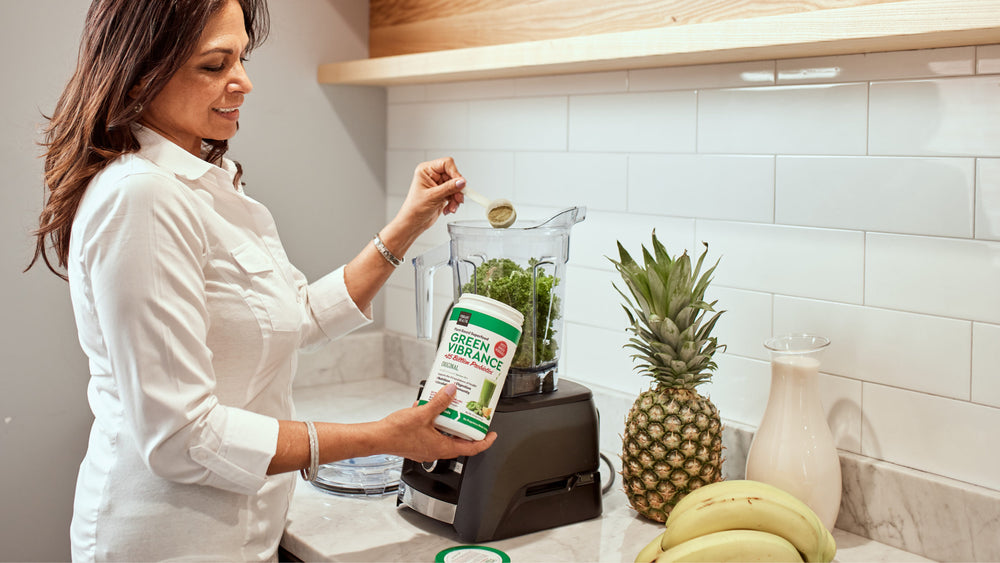
The Power of Good Nutrition
Ultra-processed foods account for about 58% of the calories in the American diet. 1
As a society, we have become very disconnected from what we eat and developing diet-related diseases. Why? Well, we do not usually feel the consequence immediately. Slowly and silently, when we eat that donut, have that pizza, drink that soda, etc., damage to our body is being caused over time. However, because it is off in the future, we turn a blind eye to the damage we know is happening due to our dietary choices.What enters our mouth has now entered the gateway to an inner sanctum; it will either generate life and good health or disease and premature death. 2
Poor food choices along with a drop in nutrients in our foods due to food processing and depleted soil have put us in a state of many people being malnourished and at risk of illness. 3
Plant based Nutrition
Many studies indicate that plant-based foods richin nutrition are the foundation of good health. However, we also may need to fill in the nutritional gaps with dietary supplements. A diet that is complete in nutrition needs to include a wide variety of whole, unprocessed food. It is important to get all the colorful fruits and vegetables that contain antioxidants, fiber, and micronutrients.4
Eating this way also appears to increase the stability of a healthy microbiome and support overall good health.5

Fiber
We now know that fiber has more far-reaching health effects, lowering the risk of several diseases, susceptibility to pathogens, and aids in keeping a healthy inflammatory response. Plant-based foods, such as fruits, vegetables, beans, and whole grains, are excellent sources of dietary fiber. 6
Fiber has been shown to improve heart health, hypertension, slow blood sugar absorption, aid in weight control, bowel regularity and detoxification. 7
Fiber also benefits gut microbiota balance. 8
Nutrition and Immune Function:
Being malnourished or nutrient deficient affects the ability for our immune system to function properly. Our immune system needs nutrition to deal with threats like, bacteria, viruses, and parasites. 9
Nutrition to support immunity.
- Greens & Veggies
These plants are loaded with phytonutrients and fiber that support beneficial bacteria in our gut and in turn, keep your immune system defenses strong.
- Garlic and onions.
Allium-rich veggies process powerful anti-viral, antibacterial, and antifungal properties They also feed your gut the fiber. 10
- Herbs
Ginger, garlic, turmeric, rosemary, chili pepper and oregano 11
Nutrition for Brain health.
Think of nutrients as fertilizer for your brain. Proper nutrition will improve communication and connections in the brain.
- Dark chocolate
flavonoids in dark chocolate may trigger chemical reaction in the brain that help to grow new brain cells that are responsible for memory and learning.12
- Leafy Greens
Spinach, kale, and collard greens have large amounts of folic acid, vitamin E, and carotenoids which benefit brain health. 12
- Fruit & Berries
strawberries, blueberries, blackberries and black current and more, offer protection from oxidative stress on the brain. Studies have shown that people who ate the most berries had a slower rate of cognitive decline. 13

- Nuts & Fish
These are great sources of vitamin E, which is a key nutrient for brain health. Walnuts have been shown to aid in maintaining cognitive function. 14
- Omega - 3
Fatty acids from fish or supplementation has a huge beneficial impact on our brain. Our brains are nearly 60% fat and need sufficient fat to function optimally. 15
- Olive oil
Polyphenols are potent antioxidants present in extra virgin olive oil has been shown to aid in reversing age - related learning and memory issues. 16
Nutrition and skeletal health.
Nutrition is critical to the development and maintenance of a healthy skeleton.17 A plant- based diet, getting plenty of protein, adequate amounts of vitamin D and K2 from food and supplements aids in protecting bone health.18
Emerging evidence also suggests that supplementing with collagen may help preserve bone health. 19
Nutrition for the heart.
Nuts, seeds, avocado, and olives, salmon sardines and flaxseeds contain healthy monounsaturated fats, and omega -3 fatty acids to promote heart health. 20
Green tea aids in heart protection due to its cholesterol lowering benefits.
Colorful fruits and vegetables
These plants contain disease fighting vitamins, minerals, fiber, phytonutrients, antioxidants, and anti-inflammatory benefits. 21
Supplementing to support nutritional deficiencies.
Large percentages of American children and adults do not meet recommendations for under-consumed ‚nutrients. Therefor supplementation has become necessary. 22 Vitamins, minerals, and other nutrients can help fill nutrient gaps in the diet.23
It is important to speak to your health care provider about what deficiencies you may have that would benefit from supplementation.

Mediterranean diet
There is no one nutritional prescription that fits everyone. To get you started on your own path, there are dietary steps that are standard suggestions that suit most people. It has been proven that food coming directly from nature is best. unprocessed, free of chemical additives, and rich in nutrients.24
It is important to consult with your health care provider about any new diet you are considering.
Many studies indicate that the Mediterranean diet may benefit maintain a healthy weight, help prevent heart attacks, strokes, type 2 diabetes, and premature death.25It also has been found to lower depression.26
The Mediterranean diet is an effective easy to follow life diet that includes a variety of fresh nutrient rich foods. 27

Food staples
A list makes your shopping trip more efficient. When you plan, you'll have the ingredients you need to prepare healthy meals quickly and avoid purchasing things that are not healthy choices and unnecessary. 28
- Plenty of vegetables, fruits, nuts, seeds, legumes, potatoes, whole grains, breads, herbs, spices, fish, seafood, and extra virgin olive oil.
- Plenty of fresh water.
- Moderate amounts of organic Poultry, eggs, cheese, and yogurt.
- Occasional pasture raised red meat.
- Avoid completely sugar, processed meat, refined grains, refined oils and other highly processed foods.
1. https://www.ncbi.nlm.nih.gov/pmc/articles/PMC7295866/
2. https://www.mindbodygreen.com/articles/covid-and-nutrition
3. https://www.mindbodygreen.com/articles/metabolic-health-and-immune-function-are-critically-intertwined
4. https://www.ncbi.nlm.nih.gov/pmc/articles/PMC7295866/
5. https://www.ncbi.nlm.nih.gov/pmc/articles/PMC6478664/pdf/fnut-06-00047.pdf
6. https://www.ncbi.nlm.nih.gov/pmc/articles/PMC6478664/pdf/fnut-06-00047.pdf
7. https://www.ncbi.nlm.nih.gov/pmc/articles/PMC7295866/
8. https://fullscript.com/blog/nutrition
9. https://www.ncbi.nlm.nih.gov/pmc/articles/PMC7295866/
10. https://drfranklipman.com/2020/03/04/30-ways-to-boost-immunity-right-now
11. https://drhyman.com/blog/2020/04/01/a-functional-medicine- approach-to-covid-19/
12. https://www.mindbodygreen.com/articles/neuroscientist-recommends-dark-chocolate-for-heart-and-brain-health
13. https://www.ncbi.nlm.nih.gov/pmc/articles/PMC4192974/
14. https://drhyman.com/blog/2018/01/16/heres-heal-broken-brains-nutrients
15. https://drhyman.com/blog/2018/01/16/heres-heal-broken-brains-nutrients
16. https://pubmed.ncbi.nlm.nih.gov/21955812/
17. https://pubmed.ncbi.nlm.nih.gov/11071580/
18. https://www.healthline.com/nutrition/build-healthy-bones
19. https://pubmed.ncbi.nlm.nih.gov/11071580/
20. https://drhyman.com/blog/2010/05/20/lower-your-risk-of-heart-disease-without-drugs/
21. https://academic.oup.com/cdn/article/3/Supplement_1/nzz039.P18-040-19/5517323
22. https://www.clinicaltherapeutics.com/article/S0149-2918(18)30089-4/fulltext
23. https://www.healthline.com/nutrition/21-reasons-to-eat-real-food#TOC_TITLE_HDR_2
24. https://www.ncbi.nlm.nih.gov/pmc/articles/PMC6723598/#:~:text=There%20is%20also%20evidence%20of,10%2C11%2C12%5D.
25. https://www.ncbi.nlm.nih.gov/pmc/articles/PMC5625964/
26. https://www.healthline.com/nutrition/mediterranean-diet-meal-plan
28. https://www.healthline.com/nutrition/mediterranean-diet-meal-plan




